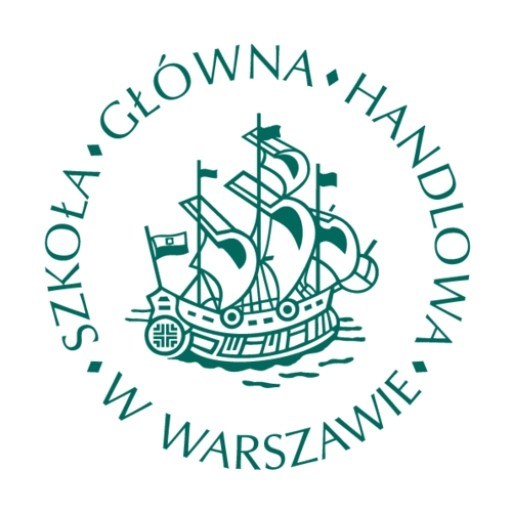Photos of university / #uniessex
The BA International Economics (including Year Abroad) programme at the University of Essex offers students a comprehensive understanding of global economic issues, policies, and practices. Designed to equip graduates with the analytical skills, theoretical knowledge, and practical experience necessary for a successful career in economics, this programme provides a solid foundation in both microeconomics and macroeconomics. Students will explore key topics such as international trade, development economics, financial markets, and economic policy analysis, gaining insights into how economies operate on a global scale.
The inclusion of a Year Abroad in the programme allows students to immerse themselves in different cultural and academic environments, fostering international awareness and cross-cultural communication skills. During their year abroad, students may spend time studying at partner universities across Europe, North America, or other regions, benefiting from diverse perspectives and innovative teaching methods. This experience not only enhances language skills but also broadens professional networks and improves intercultural competence, which are highly valued in international economics careers.
The programme employs a blend of lectures, seminars, workshops, and real-world case studies to deepen understanding and encourage critical thinking. Students are also encouraged to develop their quantitative skills through modules in econometrics, data analysis, and research methods, preparing them for data-driven decision-making roles in various sectors. The curriculum is regularly updated to reflect current economic developments and policy debates, ensuring students receive relevant and up-to-date education.
Graduates of this programme are well-prepared for employment in international organizations, financial institutions, government agencies, consultancy firms, and multinational corporations. They may also choose to pursue further study at postgraduate level. The University of Essex's supportive academic environment, combined with its commitment to employability and practical skills, ensures students are ready to meet the challenges of the evolving global economy, equipped with both theoretical knowledge and practical experience.
The International Economics (including Year Abroad) undergraduate program at the University of Essex offers students a comprehensive understanding of the global economic landscape, focusing on international trade, finance, and economic development. The course is designed to equip students with a strong theoretical foundation complemented by practical skills relevant to careers in international organizations, government agencies, financial institutions, and multinational corporations. During the program, students explore key topics such as market structures, economic policies, trade negotiations, exchange rates, and the impact of globalization on economies worldwide. The curriculum emphasizes quantitative techniques and data analysis to enable students to interpret economic data accurately and make informed decisions. A distinctive feature of this program is the Year Abroad, which provides students with valuable international experience. During this year, students study at a partner university in a different country, immersing themselves in a new academic environment and gaining cross-cultural competencies. This experience enhances their understanding of diverse economic systems and broadens their global perspective. Throughout the course, students also develop critical thinking and communication skills through essays, presentations, and group projects. The program is suitable for students interested in understanding contemporary economic challenges, such as economic inequality, sustainable development, and the effects of technological change. Graduates of the program will be well-prepared for further study or for entering the workforce in roles that require analytical skills, economic insight, and global awareness. The University of Essex's strong links with industry and international organizations provide opportunities for internships and networking, helping students to launch their careers effectively.
To complete the Bachelor's degree in International Economics, including the Year Abroad at the University of Essex, students must fulfill a series of academic requirements. The programme typically spans three years of full-time study, with the option to include a Year Abroad in the third year, which provides students with valuable international exposure and experience. Admission standards usually require A-levels, equivalent qualifications, or relevant international credentials, with a competitive academic record advantageous for entry.
The core curriculum covers fundamental topics such as microeconomics, macroeconomics, quantitative methods, and international trade theories, providing students with essential analytical and problem-solving skills. In addition to the compulsory modules, students are offered a variety of optional courses to tailor their learning towards specific interests, including development economics, financial economics, and European economic integration. The Year Abroad component typically involves studying at a partner university in a designated country, enhancing language skills and intercultural competence. Students are expected to meet language proficiency requirements and undertake coursework or research projects that reflect their international experience.
Assessment methods vary but generally include examinations, coursework essays, presentations, and group projects. A significant research project or dissertation is required during the final year, demonstrating the ability to critically analyse economic issues. To successfully graduate, students must achieve a specified overall grade point average as outlined by the programme regulations. The programme also encourages participation in internships, fairs, and workshops to complement academic learning with practical experience. Regular academic advisement and support services are available to guide students through module selection, career planning, and personal development. Upon successful completion, graduates receive a Bachelor of Arts (Honours) degree in International Economics, fully accredited and recognized internationally, opening up career opportunities in international finance, policy analysis, consultancy, and economic research.
The financing options for the International Economics program at the University of Essex are designed to support students through various funding opportunities, including government loans, scholarships, bursaries, and external funding sources. UK students may be eligible for government student loans provided by the Student Finance England, which cover tuition fees and offer maintenance loans to assist with living expenses. International students are encouraged to explore scholarships and bursaries, such as the Essex International Scholarships, which are awarded based on academic excellence and potential. Additionally, the university provides a range of financial aid packages, including early payment discounts and fee installment plans, to help manage tuition payments effectively. Students are also advised to consider external funding options, including national and international scholarship programs, private sponsorships, and educational loans offered by financial institutions in their home countries. The university's financial aid office offers guidance to prospective and current students on application procedures, eligibility criteria, and deadlines for various funding opportunities. For students undertaking a Year Abroad as part of the program, additional funding considerations may include travel grants, language immersion grants, and specific scholarships for international mobility programs. The university aims to ensure that financial concerns do not hinder qualified students from enrolling or completing their studies and consistently updates its funding opportunities to reflect available resources and changing economic conditions. It is recommended that students consult the University of Essex’s official website and contact the financial aid office directly for the most current and personalized information regarding financing the International Economics program, including specific eligibility, application procedures, and deadlines. The university also provides guidance on budgeting and financial planning to support students throughout their academic journey, ensuring they can focus on their studies without undue financial stress.
International Economics at the University of Essex offers a comprehensive undergraduate programme designed to provide students with a solid understanding of global economic issues, international trade, finance, and economic policy. The programme prepares students for careers in international organizations, government, finance, or further academic research by equipping them with analytical skills and a global perspective. A distinctive feature of this degree is the Year Abroad, which allows students to spend a year studying at a partner university in a different country, enhancing their intercultural competence and language skills. During the Year Abroad, students can choose from a range of partner institutions across Europe, North America, and beyond, depending on their language proficiency and academic interests. This year provides valuable experience in an international environment, fosters independence, and broadens their understanding of different economic systems and cultures. The curriculum covers core topics such as microeconomics, macroeconomics, international trade, and international finance, complemented by optional modules like development economics, economic policy, and sports economics. The programme also emphasizes quantitative skills, including econometrics and data analysis, which are crucial for research and policy analysis in international economics. Teaching methods combine lectures, seminars, workshops, and independent research, supported by state-of-the-art facilities and online resources. Assessment methods vary, including essays, presentations, exams, and projects, designed to develop critical thinking and communication skills. The university's strong links with industry and policy institutions enable students to benefit from guest lectures, internships, and networking opportunities, fostering practical experience and employability. Graduates of the programme have gone on to secure roles in international consultancy firms, financial institutions, governmental agencies, and research organizations. The University of Essex also offers additional support through career services, academic advising, and student societies related to economics and international affairs. Overall, the International Economics degree with Year Abroad provides a rigorous academic foundation, international exposure, and practical skills necessary for a successful career in the increasingly interconnected global economy.










